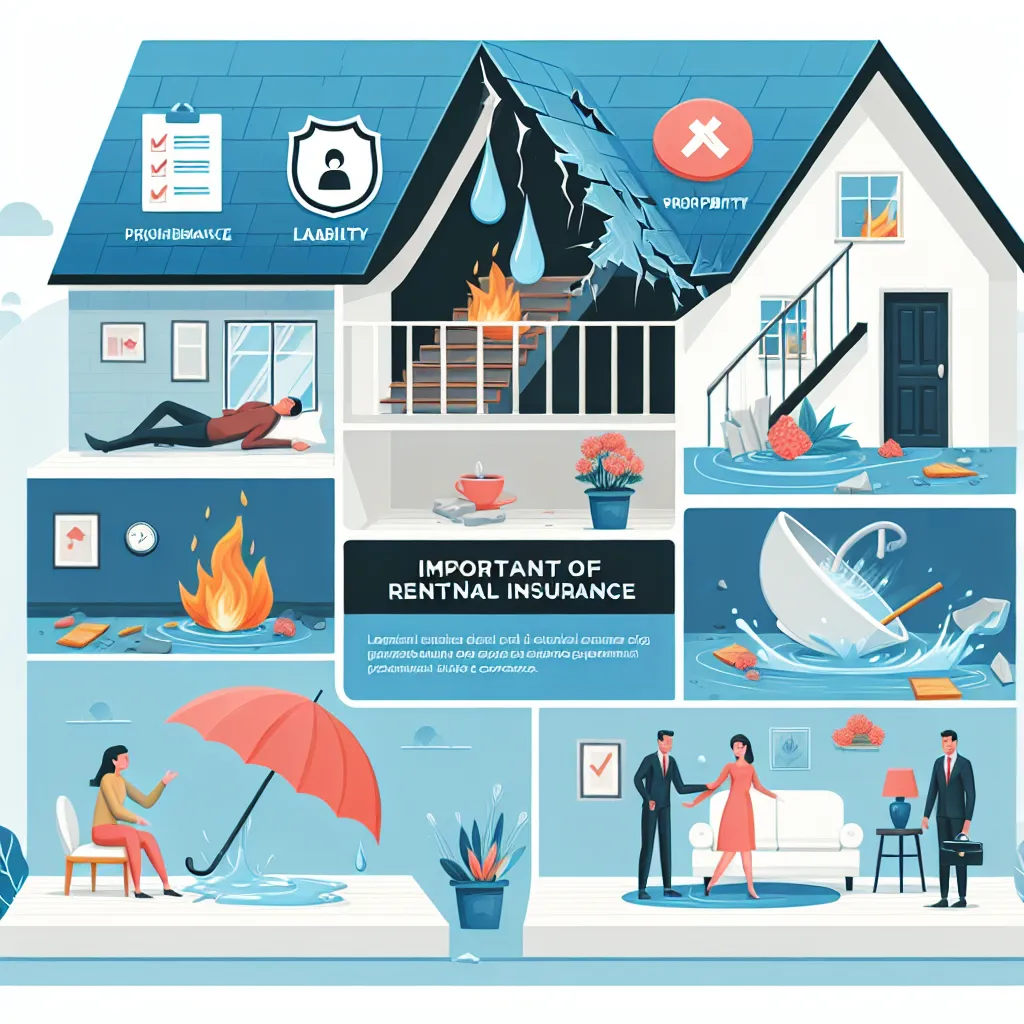Renting a house can be an exciting and flexible option for many. However, it comes with its own set of responsibilities and risks. One of the often-overlooked aspects is rent house insurance, which can save you from unexpected financial pitfalls. Whether you’re a tenant or a landlord, understanding the types of insurance available can protect your investment and provide peace of mind. Let’s dive into the essentials of rent house insurance and see how it can benefit you.

What is Rent House Insurance?
Rent house insurance, also known as landlord insurance or rental property insurance, is a type of coverage designed to protect the rental property, the landlord, and sometimes the tenant. This insurance covers various risks, including property damage, liability claims, and loss of rental income. It’s an essential safeguard for landlords who lease their properties and tenants who want to protect their belongings.
Types of Rent House Insurance
There are several types of rent house insurance policies available, each catering to different needs. Here’s a breakdown of the most common ones:
1. Rental Dwelling Policy
A rental dwelling policy is tailored for landlords who rent out houses. This policy covers:
– Property Damage: Protection against damages caused by fire, storms, vandalism, and more.
– Liability Claims: Covers legal fees and settlements if someone gets injured on your property.
– Loss of Rental Income: Compensates for lost rental income due to covered damages.
2. Rental Condo Unitowners Policy
This policy is perfect for landlords who rent out condo units. It includes:
– Property Coverage: Protection for the condo unit and any owned furnishings.
– Liability Protection: Covers legal claims and medical expenses for injuries that occur within the unit.
– Loss of Rent: Compensation for lost rental income due to covered incidents.
3. Tenant Insurance
While landlords have their policies, tenants can also protect their belongings with tenant insurance. It covers:
– Personal Property: Protection for personal belongings in case of theft, fire, or other covered events.
– Liability Coverage: Covers legal fees if the tenant is responsible for damage to the rental property or injuries to others.
Benefits of Rent House Insurance
Rent house insurance offers numerous benefits for both landlords and tenants. Here are some key advantages:
For Landlords
1. Protection Against Financial Loss**
Landlords can face significant financial losses if their rental property is damaged or becomes uninhabitable. Rent house insurance helps cover repair costs and lost rental income, ensuring financial stability.
2. Liability Coverage**
Accidents happen, and if a tenant or visitor gets injured on your property, you could be held liable. Liability coverage protects landlords from costly legal fees and settlements.
3. Peace of Mind**
Knowing that your investment is protected allows you to focus on managing your property without constant worry about unexpected incidents.
For Tenants
1. Protection for Personal Belongings**
Tenant insurance ensures that your personal belongings are covered in case of theft, fire, or other damages.
2. Liability Protection**
If you accidentally damage the rental property or someone gets injured in your unit, liability coverage can save you from hefty legal expenses.
3. Affordable and Convenient**
Tenant insurance is typically affordable and provides valuable protection, making it a smart investment for renters.
Common Myths About Rent House Insurance
There are several misconceptions about rent house insurance that can lead to confusion. Let’s debunk some of these myths:
1. “I Don’t Need Insurance; My Landlord’s Policy Covers Everything”**
While your landlord’s insurance covers the building, it doesn’t protect your personal belongings. Tenant insurance is necessary to cover your possessions.
2. “Rent House Insurance is Too Expensive”**
Rent house insurance is often more affordable than people think. The cost is minimal compared to the financial protection it offers.
3. “I Only Need Insurance if I Own Expensive Items”**
Regardless of the value of your belongings, tenant insurance provides peace of mind and liability protection, making it essential for all renters.
Choosing the Right Rent House Insurance
Selecting the right insurance policy can be overwhelming, but it doesn’t have to be. Here are some tips to help you make an informed decision:
1. Assess Your Needs**
Determine the level of coverage you need based on your property, location, and potential risks.
2. Compare Policies**
Look at different insurance providers and compare their policies, coverage options, and premiums.
3. Read the Fine Print**
Understand the terms and conditions of the policy, including any exclusions or limitations.
4. Consult an Expert**
Speak with an insurance agent to get personalized advice and ensure you choose the right policy for your needs.
Conclusion
Rent house insurance is a crucial investment for both landlords and tenants. It offers protection against property damage, liability claims, and loss of rental income, ensuring financial stability and peace of mind. By understanding the different types of policies and their benefits, you can make an informed decision and safeguard your investment. With platforms like AnySqft, navigating the complexities of rent house insurance and property transactions has never been easier. Enjoy the peace of mind that comes with knowing you’re protected, no matter what life throws your way.
